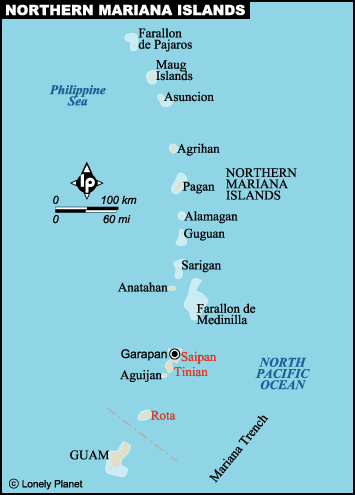Strategic civil rights litigation involves building upon prior successes. This is how the NAACP Legal Defense Fund dismantled segregation and how the Second Amendment Foundation is going about winning back our Second Amendment rights. Wins in the Heller and McDonald cases were the predicates to winning in other cases like Ezell v. Chicago and Moore v. Madigan.
Likewise, the win by David Sigale and SAF in Radich v. DeLeon Guerrero in the District Court for the Northern Mariana Islands is what allowed Paul Murphy to succeed in his case there. Radich overturned the ban on handguns and handgun ammo, the ban on issuing Weapons Identification Cards (WIC) to permanent resident aliens, and the implied prohibition on issuing WICs for self or family defense.
Paul Murphy is a former US Army Ranger who relocated to the Northern Mariana Islands in 2007 after serving in Iraq and Afghanistan. He brought with him certain firearms including a WASR 63 and a Glock 19 which were confiscated upon his arrival along other ammo. The Northern Mariana Islands also had a prohibition against any center-fire rifles in a caliber greater than .223.
Mr. Murphy, acting as his own attorney or pro se, challenged a number of firearms regulations of the Northern Mariana Islands in a case brought in December 2014. He was allowed to amend his complaint after the Radich win. In particular, Mr. Murphy challenged the following:
(1) the requirement that he obtain a license and register his
weapons; (2) the restrictions on how he may store his weapons at home; (3) the ban on large
capacity magazines (“LCMs”); (4) the ban on rifles in calibers above .223; (5) the ban on “assault
weapons”; (6) the ban on transporting operable firearms; and (7) the $1,000 excise tax imposed on
handguns.
The $1000 excise tax was enacted by the CNMI legislature after the loss in the Radich case. Their aim was to make it exceedingly expensive to own a handgun.
Mr. Murphy and the Northern Mariana Islands filed cross motions for summary judgment. This can be done when the facts are not in dispute and the only dispute is over the law itself.
In her decision released on September 28th, Chief Judge Ramona V. Manglona each of these challenges and used a two-part test to see whether they were valid. The first part was to see if the requirement impacted the Second Amendment and the second part was did the government have either a substantial or compelling interest in the requirement. For the most part, her 55-page opinion relied upon intermediate scrutiny.
In the end, both sides won something but overall Mr. Murphy won more.
Based on the foregoing, Murphy’s motion for summary judgment and the
Commonwealth’s cross-motion for summary judgment are granted in part and denied in part. In
particular, judgment is entered in favor of the Commonwealth and against Murphy on the
following issues:
a. Licensing individuals who seek to possess firearms under 6 CMC § 2204;
b. Storage restrictions on firearms in the home under 6 CMC § 10204(a); and
c. The ban on large capacity magazines under 6 CMC § 10207(b).
On the other hand, judgment is entered in favor of Murphy and against the Commonwealth on the
following issues:
a. The registration of firearms;
b. The ban on long gun caliber restrictions above .223;
c. The ban on the following “assault weapon” attachments to semiautomatic rifles:i. a pistol grip under the action of the weapon;
ii. a thumbhole stock;
iii. a folding or telescoping stock;
iv. a flare launcher;
v. a flash suppressor; and
vi. a forward pistol grip;d. The ban on carrying a handgun in public, as implemented in the transportation
regulations; and
e. The $1,000 excise tax on pistols
With regard to handgun carry in public, Mr. Murphy (other others) will be allowed to exercise open carry outside the home. Concealed carry is still banned given the 9th Circuit’s en banc decision in Peruta where they said there was no Second Amendment right to carry concealed. Likewise, the safe storage requirement follows another 9th Circuit ruling on a case from San Francisco (Jackson v, San Francisco)
As reported in the local paper, Marianas Variety, Mr. Murphy will have his weapons and ammunition returned as soon as he properly renews his gun license. They also reported that the CNMI Attorney General’s Office is preparing legislation to comply with the court’s findings which they will ask the CNMI legislature to approve.
Mr. Murphy and every other current and future gun owner in the Northern Mariana Islands are very lucky. I say this because pro se cases usually turn out bad for the Second Amendment. Witness the problems caused by Leonard Embody in the 6th Circuit.

